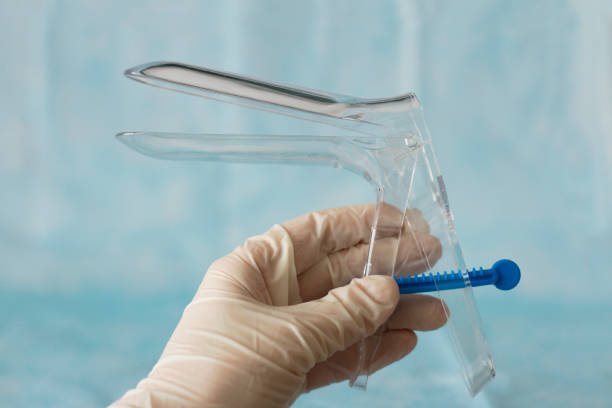What Steps Can I Take to Check for STIs
Taking charge of your sexual health starts with understanding the importance of regular STI screening. To ensure maximum protection and prevent the transmission of infections, it is essential to remain abreast of the latest advances in testing technology, as well as familiarize yourself with various risk factors. Depending on your frequency of sexual partners, condom use, or prior history of STIs, the number and type of tests you get may vary. From being aware of available tests to discerning what results mean, consider this knowledge your most powerful prevention tool. By staying informed and proactive about sexual safety measures, you can help keep yourself and your partner safe while retaining control over your own sexual health.
Importance of Getting Tested for STIs
Getting tested for sexually transmitted infections (STIs) is crucial for several reasons:
-
Early Detection
Early detection of sexually transmitted infections (STIs) is essential for ensuring optimal health outcomes. Many STIs may not exhibit any immediate symptoms, or they may have mild symptoms that can be mistaken for another condition. As such, regular testing is necessary to ensure early detection and prompt treatment which can greatly reduce the risk of complications. Additionally, early detection helps to prevent the spread of infections to sexual partners. Prompt diagnosis and appropriate management are key in curtailing the transmission of STIs, making regular testing an important part of a comprehensive public health strategy. By seeking out regular screening and adhering to recommended treatment protocols, individuals can take proactive steps toward protecting their own health and reducing the potential spread of infection in the wider community
-
Protecting One’s Health
Protecting one’s health is of utmost importance, particularly when it comes to sexually transmitted infections (STIs). These infections, if left untreated, can lead to serious and long-term complications. For instance, Chlamydia and Gonorrhea can cause Pelvic Inflammatory Disease (PID) which results in the risk of infertility in women. Similarly, Human Papillomavirus (HPV) can give rise to cervical cancer while untreated Syphilis can lead to organ damage and even neurological disorders. In light of such potential consequences, it is important for individuals to get tested for STIs so that they can receive timely treatment and protect their long-term health. With early diagnosis and treatment, the risk associated with STIs can be minimized considerably, safeguarding both physical and mental wellbeing.
-
Reducing Transmission
In order to reduce the transmission of sexually transmitted infections (STIs), individuals must be aware of their own status and take necessary precautions to protect themselves and their partners. While many STIs can be asymptomatic, they are still highly contagious and can easily spread through sexual contact; hence, getting tested is crucial for responsible sexual behavior. When individuals know their status, they can make informed decisions regarding protection measures such as using barrier methods and limiting sexual activity or altering behavior in other ways to prevent the potential spread of infections. Ultimately, reducing the transmission of STIs is essential not only for individual health but also for the overall well-being of communities at large.
-
Peace of Mind
Engaging in sexual activity can be an enjoyable experience, but it can also leave individuals feeling anxious and uncertain about their health status. For such reasons, regular testing for STIs is essential in order to provide peace of mind when engaging in sexual activities. Through regular testing, individuals can have the knowledge and confidence that they are taking the necessary steps to safeguard their health. Knowing one’s current health status allows them to make informed decisions about their sexual relationships and take appropriate measures to protect themselves as well as their partners from any potential risks associated with sexual intercourse. Regular testing for STIs is therefore an invaluable tool in helping to promote a safe and healthy sex life. Providing not only physical safety but also mental assurance that all participants involved have taken the precautionary steps required for a risk-free experience.
-
STI Prevention
In the pursuit of public health, regular STI testing is a crucial element of a comprehensive prevention approach. With individuals better informed about their sexual health status, they can make more mindful decisions when it comes to practicing safer sex. Early detection of infections is paramount, as it prevents further transmission and curbs the spread of sexually transmitted diseases. While testing alone does not guarantee complete protection from acquiring or spreading infections, it provides an invaluable resource for understanding one’s own sexual health and making more discerning decisions including using condoms whenever possible. Therefore, testing constitutes a vital component in safeguarding both individual and communal well-being through the implementation of effective STI prevention strategies.
It is imperative to understand that STI testing is completely confidential, and healthcare professionals can offer invaluable guidance and assistance throughout the process. Regular testing, especially for those who are sexually active or have numerous partners, is a wise decision to safeguard one’s personal health as well as that of any sexual partner or larger community. By getting tested on a regular basis, individuals can protect themselves from potential infections by detecting them early on. Furthermore, this also helps to reduce the risk of transmission by ensuring any potentially infected individuals receive treatment and refrain from engaging in further unprotected activity. Ultimately, taking responsibility for one’s own health through regular STI testing helps promote safety and well-being for everyone involved. You can conveniently get tested for STIs and receive the necessary support right here at Pregnancy Resource Center.




